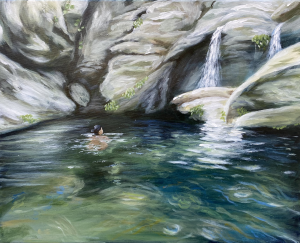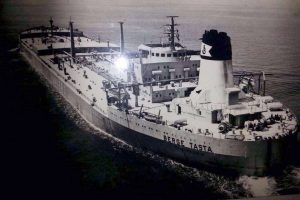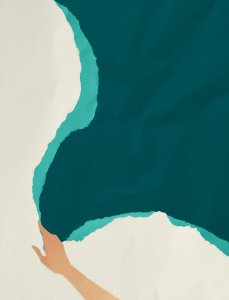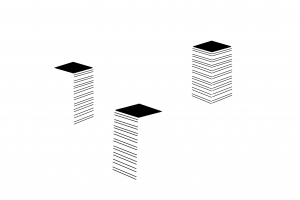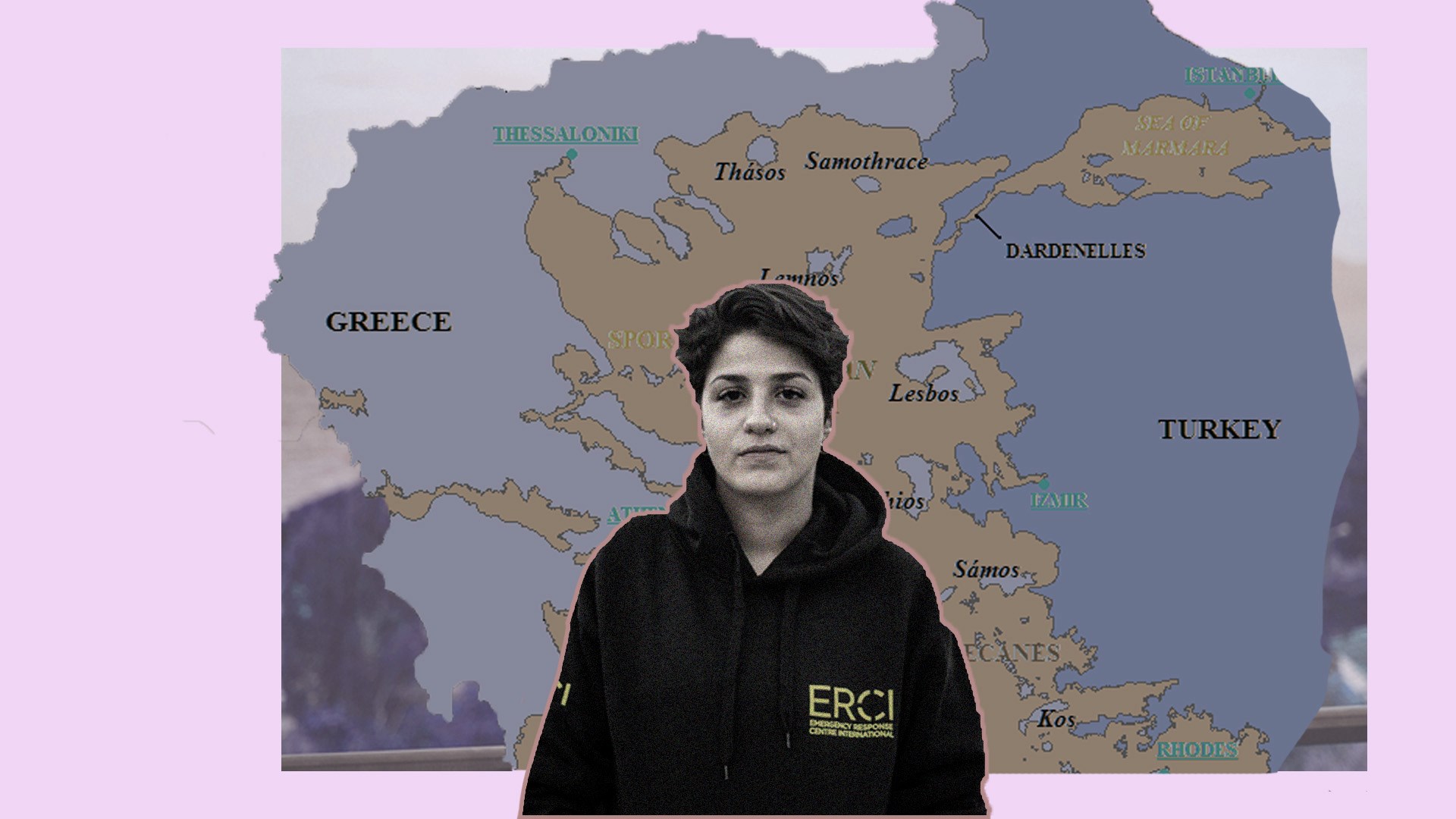
In Conversation with Sarah Mardini
by Lucy Thynne | March 29, 2020
“The boat started taking in water and the engine turned off. The boat was just a little dinghy. I jumped in the water, and my sister joined me; we had to use all the swimming resources that we had. It was a very rough sea that day. But I’m a long-distance swimmer, and I knew I could survive.”
These are the assured and reflective words of Sarah Mardini, who is well-practised in telling this story. A Syrian refugee, her journey with her sister Yusra from Damascus to Europe in the summer of 2015 made international headlines for what seemed to be a remarkable feat: an overcoming of the impossible. Her confidence clearly comes not only from talking in retrospect, but from her awareness that such a journey, fraught with complications, would usually have been fatal. The sisters had swum for three and half hours, alternating between dragging and pushing the boat until they arrived in Lesbos, Greece, but Mardini has frequently described this moment as one of being on the brink of giving up. In an interview with the BBC, Mardini speaks of the bravery of the others in the boat – many of whom couldn’t swim – but still “worked together”, all desperate to reach the mainland shore. “I made it to Europe,” she says, with a triumphant yet slightly saddened smile. “But I didn’t know it was just the beginning.”
I speak to Mardini in January, and she greets me over the phone with a laugh that is both warm and sincere. She has just completed her finals in Economics and Social Sciences at Bard College, Berlin, and is exhausted, but relieved. “It’s great, but I’m so tired!” she exclaims, and I tell her that I can commiserate with the student life. Initially, it feels simply like this: two students, chatting and complaining over exams and school, but as soon as we begin the interview it becomes very clear that Mardini has a maturity and wisdom beyond her years.
“We just couldn’t lead a normal life anymore,” she says, when I ask her about why she and her sister first chose to leave Syria. “Our family home had been destroyed in the war, and many of our friends had already gone.” She is understandably evasive about talking about her journey, and I sense immediately that this will not be a regular interview. Some questions are more sensitive than others or have simply been answered too much before, much of this, for Mardini, is now an upsetting rigmarole. We agree that I will fill in occasional details from her other interviews online, and later that night I watch a video of her speaking at a TEDx Talk in London. She is an impressive figure on the screen, gesturing intensely to the audience as she explains having to hug her mother, father, and sisters every time she left for school, unsure whether she would ever see them again. “I believe that there is no human being on earth who should have to feel that way,” she reiterates to me on the phone.
Why is it, then, that so many today turn their backs on refugees like the Mardini sisters? There are people who are so against the increasing of refugee quotas, I tell her, that they would remain unmoved even by her story. “I think people are afraid of going out of their comfort zone to help each other,” she says, but with no trace of bitterness on her own part. “They just say: ‘we don’t know who they are, we don’t know where they’re coming from, we don’t know what they’re bringing with them – so let’s just keep it that way.’ I think it is in our human nature to be scared a lot of the time – we are cowards in that way.”
Yet Mardini’s story is testimony to the fact that she is far from being a coward herself. Travelling through Macedonia, Serbia, Hungary and Austria, the sisters eventually arrived in Berlin, Germany, where they successfully claimed asylum after months of living in a refugee camp. Their story dominated the press that week, but it also spoke of the many journeys that hadn’t shared their success. Horrific images circulated and continue to circulate the media, and for many of us these will be what our minds turn to with the words ‘refugee crisis’: the face-down body of a Syrian boy; the heap of lifejackets like a landfill. Within a year, Mardini decided that she had to go back, returning to volunteer in Lesbos as a rescue swimmer and Arabic interpreter for incoming refugees. She flew over immediately after supporting her sister Yusra, who swam at the Olympic Games in Rio, 2016. It was a matter of principle, a “need” to fulfil, she stresses in her recent TEDx Talk, and there, her intended “two weeks eventually turned into two years.”
She is proudest, of everything, of her return to Greece. “Not many people want to learn about refugees or think about where they are living. I knew about this already, but I knew I had to see it again.”
Our conversation feels timely: just two weeks earlier, the newly elected Boris Johnson chose to scrap protection measures for child refugees in the Withdrawal Agreement section of his Brexit Bill. The move will endanger the rights of the very children Mardini worked with and has been a widely criticised decision. Labour peer Lord Dubs, a long-time campaigner for refugee freedoms, has denounced it a “retrograde step”. I ask Mardini about her response to these decisions, and how far she believes they are connected with a political climate that writers and thinkers are labelling as another ‘rise of the Right’. “The Right have nothing to do with it,” Mardini immediately declares. She points out that “this feeling has existed for years, even before we knew there was a word called politics.”
But it is hard to ignore that this attitude is being fuelled by a kind of politics increasingly visible today, and I wonder if Mardini is being careful in deciding what she can and can’t say. In Italy in 2018, the far-right interior minister and leader of the League, Matteo Salvini, decreed that NGO rescue ships would no longer be able arrive in Italian ports. The bill, he declared, “was a step forward to making Italy safer.” This has been a sentiment echoed in Malta, where rescue ships are increasingly being turned away with the threat that they could face fines of up to a million euros. “We keep hearing this idea about refugees: ‘they want to take our money, they want to take our jobs,’” Mardini notes. “These are incredibly silly and stupid things to say.”
It is these prejudices, however, that have also dictated much of the Greek government’s stance on refugee aid. What happened next for Mardini was perhaps the most unexpected and distressing of her experiences thus far. Before boarding her flight back to Berlin in August 2018, she was arrested by the Greek government for “criminalising help given to refugees.” Alongside her fellow humanitarian aid worker, Seán Binder, she was taken away and imprisoned for 107 days, an experience she has described as deeply traumatic and shocking. “Imagine being locked up – you don’t know why, you don’t know if you will ever get out,” she tells the audience during her TEDx Talk, her eyes intense with emotion. Whilst now released on bail, her charges have not been dropped: at the age of twenty-four, Mardini still faces up to twenty-five years in prison.
Mardini is not the first to have been put in prison for saving lives. The risk of being a humanitarian aid worker, in fact, has never been higher: last year, twenty-two-year-old Zaachila Orozco was among those convicted for allegedly harbouring undocumented refugees in Arizona. Similar cases sprung up in Bangladesh, China, South Sudan, and Mexico. While most face minor convictions, Mardini and Binder are charged by Greek police on account of human smuggling, money laundering, and even espionage. The exact details of this ‘espionage’ have never been clarified. Amnesty International’s Kondylia Gougou welcomed the news of Mardini and Binder’s release, but also called attention to the “outrage” of their potentially immense prison sentences. Condemning their arrest, she lamented the government’s failure to recognise “dedicated volunteer humanitarians who helped people in need…these baseless charges should be dropped.” Baseless seems the apt word to use, as both Mardini and Binder have rejected their status as human smugglers, pointing to the absurdity of the police’s equation that saving refugees’ lives equals a prison sentence.
The situation is ethically complex: typically, Mardini reminds me, we reward people who save others. Think lifeguards, firemen, doctors. However, now, the camps in Lesbos are overflowing, escalating to become a kind of crisis within a crisis. The largest camp, Moria, is a no-man’s land for those seeking asylum, ultimately hoping for the citizenship which will give them a permanent home. It has a capacity of 3,000, yet there are currently more than 13,000 people living there, many of whom are struggling to cope with the often-inhumane conditions. While writing this piece, the news emerges that the outbreak of COVID-19 has also reached the camp, and it is a reminder of the privilege it is to be able to self-isolate at all. Moria now seems to be the apex of the refugee emergency itself: a chaotic mass of humanity, spiralling beyond control. It is no surprise, then, that the Greek government has chosen to crack down on border regulations. But surely it is illogical that workers like Mardini should bear the brunt of this? It seems a costly and needless way of handling the overcrowded camps, and Mardini agrees. “In the end, we are all just humans,” Mardini stresses, speaking with such assertion that I can hear the passion in her voice even across the phone. “I think we need to go back to the basic things kids learn at school – to love others, to take care of your neighbours.”
If we are all just humans, what can we do in our power to help each other? I express to Mardini the frustration, particularly of young people, who can feel helpless in the midst of this humanitarian emergency. She advises working with a ‘think global, act local’ mindset. “I was once contacted by a girl from India who was wondering how she could get to Greece to help out with the refugee crisis. And I said hold on – I think India has enough of its problems of its own which you can start with.” But there are other ways of manifesting change, she points out; take the youth climate strikes, for example. “When I saw that, I thought we need to get out on the streets for the refugees. History is repeating itself, and we have to act,” she says. She is sensitive to the fact that both the refugee and the climate crisis are pressing issues in their own right, and cannot be lumped into one, but is adamant that both are feeding into each other. We have climate refugees already – from starvation, and droughts.” It can be overwhelming to acknowledge, I say to her, but ultimately, we both agree that it will become a cycle of disaster: ignore one and you exacerbate the other.
When I first heard Mardini speak back in December 2019, she was introducing herself on stage at the live recording of The Guilty Feminist in London, a podcast which mixes stand-up comedy with its advocation for equal rights. She was remarkably articulate, speaking touchingly of the small, human things that improved refugee camps: organising morning runs, picking flowers to loop through the barbed wire. I ask her now how her feminism plays into the work she does, and she says that she is always keen to push for the rights of the female refugee in particular – whether this is through providing a safe space for pregnant women, or even just by being a friendly face to talk to.
It is heartening for me to hear Mardini speaking with such optimism for the future, given her traumatic past. As a guest on the podcast recording, her answers were filled with poignant moments – recalling her journey to Greece, her arrest, and finally, her candid admission to the audience that she had been diagnosed with depression and PTSD. Many of us retreat to memories of home as a kind of comforting nostalgia, but the majority of Mardini’s are of loss and pain. These illnesses, she believes, result far more from her experience of arrest in Lesbos than her tumultuous journey across the ocean. I ask her who keeps her going, or who inspires her. “My own friends,” she says. “I don’t have any celebrity heroes and I’m actually trying to design a campaign against that mentality. And all the mothers,” she adds quietly after a moment. “Those at home, those who are independent, what they’re doing everyday – the female power. I’m inspired by the simple things.”∎
Words by Lucy Thynne. Art by Wei Kai Ng.

